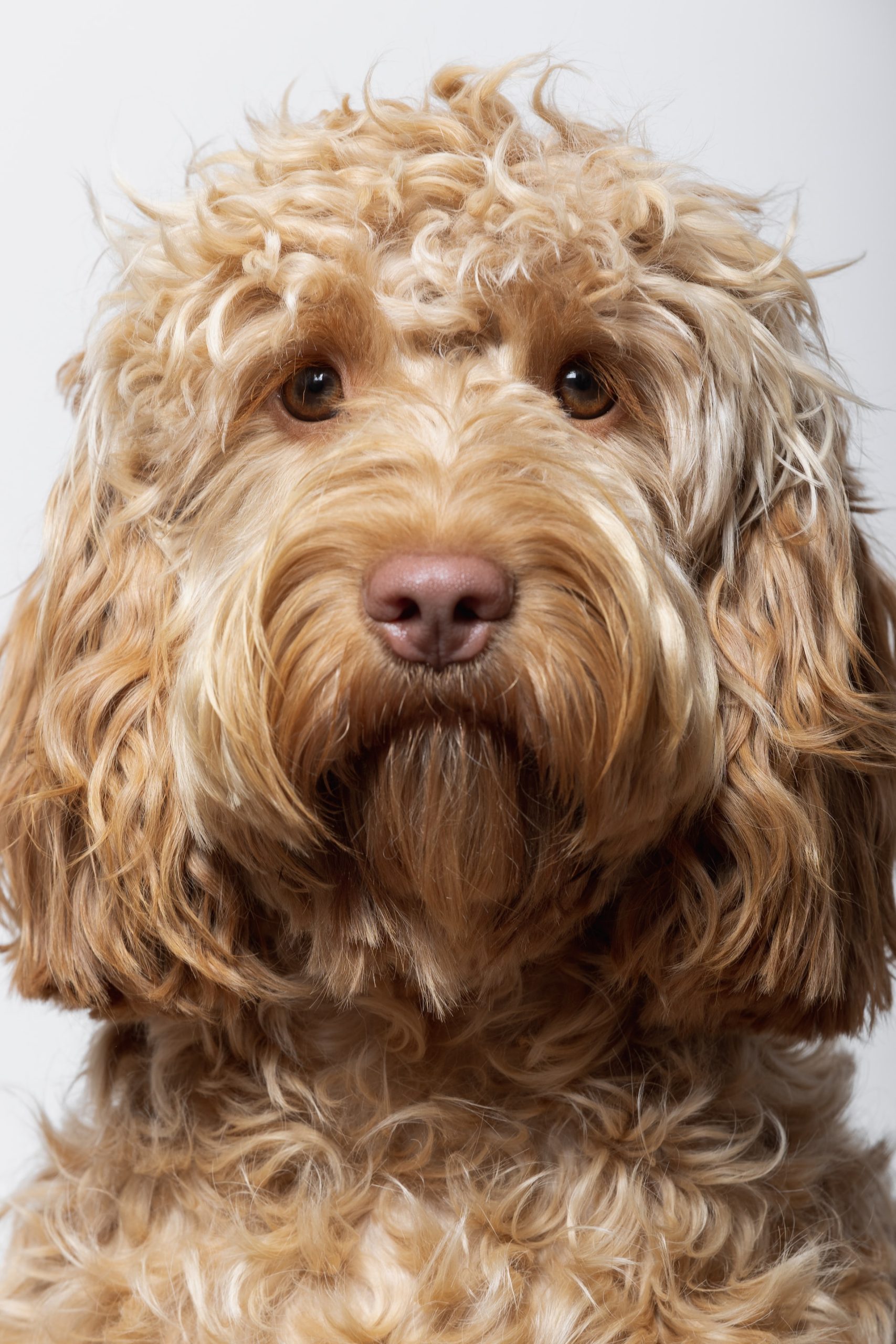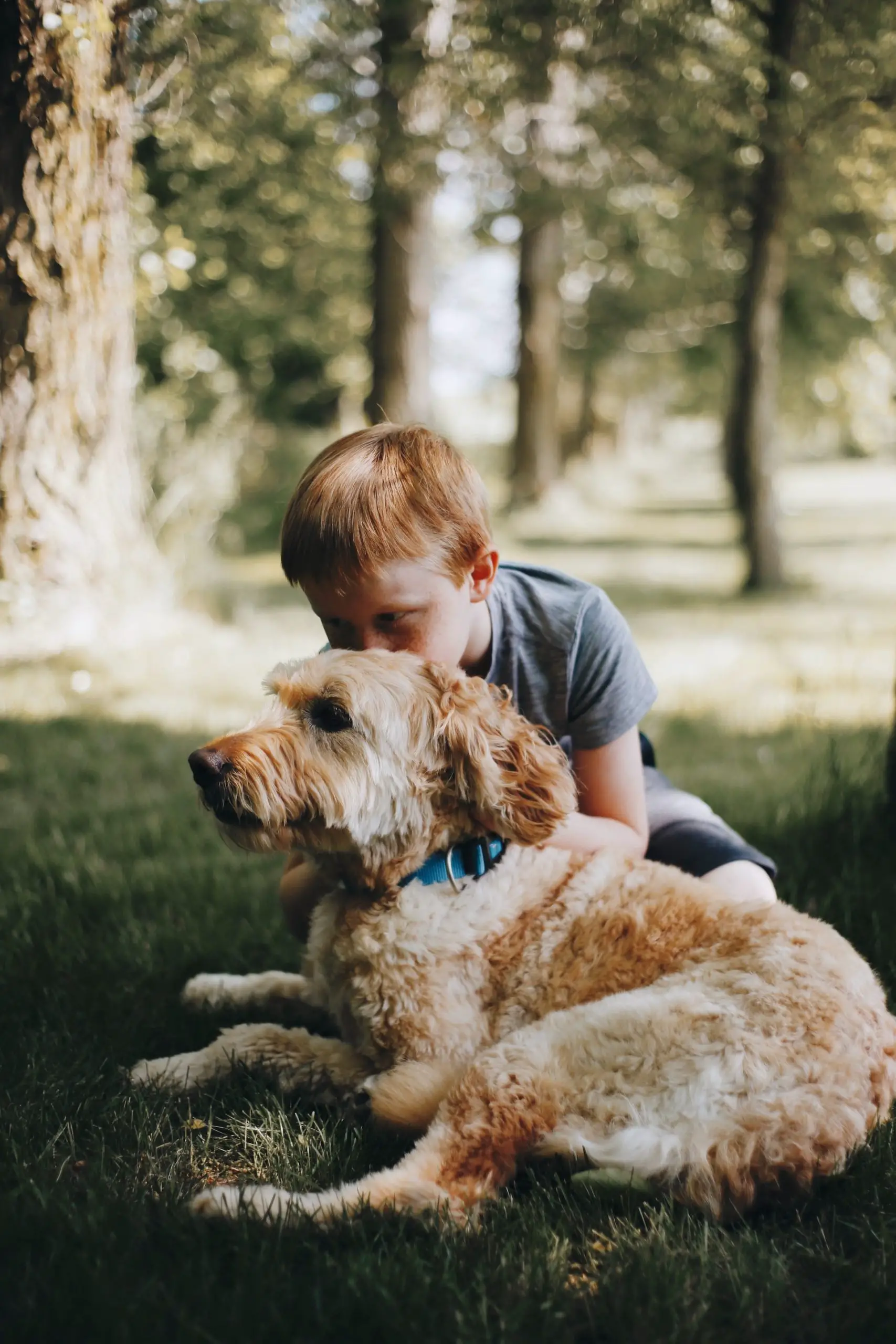Cocker spaniel and poodle hybrids are known as cockapoos. These dog breeds have grown in popularity in recent years, with more and more people interested in owning one of their own as they make the best family dogs. They’re small, fluffy dogs that are excellent lap companions and perfect for smaller homes or apartments. They also have a lot of personality, are very loving and are super cute. If you plan to adopt or purchase a cockapoo, it’s important to know about their potential health issues.
Physical Traits of a Cockapoo
There are two main physical traits that cockapoos have in common with both their poodle and cocker spaniel parents. They have a very curly coat that is either short or medium in length. Their coat has a loose texture and is usually hypoallergenic.
They also have a shorter muzzle than other similar-sized dogs and may have smaller ears.
Cockapoos are generally smaller than both poodles and cocker spaniels and weigh between 5kg and 11kg as adults. The size they grow to depends on their breeding and genetics, Cockapoo size can vary hugely. Some cockapoos may have long legs and be more like poodles, while others may have a more barrel chest and be more like cocker spaniels.
Ear Problems
Many different dog breeds are prone to ear infections and ear issues. Cocker spaniels and poodles are both notorious for having a lot of ear problems, including infections and a buildup of ear wax. Cockapoos can also have this issue.
Ear infections can be painful and result in a foul-smelling discharge. If you notice any issues with your cockapoo’s ears, you should take him or her to the vet right away. Cockapoos are at a higher risk of ear infections because they have long, floppy ears that can easily get dirty and stay damp.
They also have a high amount of ear wax and tend to have a hard time cleaning themselves. Ear infections can also be signs of a yeast infection or bacterial infection. If your cockapoo’s ears are infected, the vet will likely clean their ears and prescribe antibiotics.
There are products that you can buy and use to try and prevent ear infections such as ear cleaners and ear drops. If you use these regularly from a puppy then you can try and keep your Cockapoo’s ears as clean as possible.
Eye Problems
Cocker spaniels and poodles also have a higher chance of eye problems. Most cockapoos don’t have any eye issues, but it’s important to check their eyes every once in a while.
There are a few eye diseases that are more common in cockapoos. The first is entropion. This is when a dog’s eyelids turn inward and rub against the cornea, causing infections, irritation, and discomfort. If your cockapoo has this issue, they will have to have surgery to correct the problem.
Progressive retinal atrophy is a degenerative eye disease in cockapoos. This disease will lead to blindness, and there is no cure.
The final eye issue that can affect cockapoos is cherry eye, which is a build-up of fluid behind the eyelid. This has to be surgically corrected.
If you are concerned about your Cockapoo’s eyes at all then please visit your vet for advice.
Skin Issues
Cockapoos are also more prone to skin issues and allergies than some other dog breeds. Some skin issues that occur in cockapoos include skin infections and hotspots. A hotspot is when a dog has an allergic reaction that causes the skin around one area of their body to become very red and inflamed.
Cockapoos can also have food allergies that result in a rash or other skin issues. If your cockapoo has a skin problem, a vet can usually prescribe an anti-inflammatory medication that will help clear it up.
If your cockapoo has a food allergy, it’s best to switch their diet. There are lots of specialty dog foods available that are allergy friendly. You can also try making your own special diet using a recipe made for allergy-sufferers. It’s important to keep an eye on your cockapoo’s skin to make sure nothing is getting infected and causing more problems.
If you’d like more information about allergies and Cockapoo’s diets, then we have written some blog posts that you can check out here –
Allergies in Cockapoos – My Cockapoo Puppy
What Foods Are Cockapoo Dogs Allergic Too – My Cockapoo Puppy
Health Tips for your Cockapoo
Cockapoos are generally very healthy dogs, but there are a couple of things you can do to keep them that way.
The first and most important thing you can do to keep your cockapoo healthy is to make sure they get all of their vaccinations. There are vaccinations that are required for cockapoos, including distemper and rabies. Some cockapoos are also recommended and suggested to get certain vaccinations, including parvovirus, hepatitis, Bordetella, and kennel cough.
You should also make sure your cockapoo gets plenty of exercise every day. They have a lot of energy and enjoy being active, so you should take them for at least a 30-minute walk or longer each day. If you have a large yard, they would also enjoy spending time there exploring.
If your Cockapoo does get lots of exercise like ours does, then we also recommend giving your Cockapoo a supplement to take care of their bones and joints.
We also recommend taking care of your Cockapoo’s teeth by brushing them regularly and also using a plaque removal powder such as Plaque Off.
Fecal Testing and Intestinal Parasites
Some dog breeds are more likely to get intestinal parasites, including cockapoos. Intestinal parasites include worms and other nasty bugs that can live in your dog’s digestive tract. Parasites can make your dog sick, cause weight loss, and make them uncomfortable.
All dogs should be tested for parasites every year, so talk to your vet about getting your cockapoo tested. They will likely recommend a deworming medication for your cockapoo.
If your cockapoo tests positive for worms, make sure you follow your vet’s guidelines for treating them. This will involve giving your dog a pill that kills the parasites in their digestive tract. You should also make sure your dog’s food is clean, since parasites like to live in food and dirt. Make sure you wash their food and bowls regularly and don’t let them eat off the ground.
Regular tapeworm treatments will help protect your dog from intestinal parasites.
Care and Maintenance for your Cockapoo’s Health
Regular grooming is important for cockapoos. Their curly hair can get matted and dirty if it’s not brushed or bathed regularly. You should also trim their nails about once a month and make sure their teeth are brushed at least twice a week.
If you would like more information about grooming your Cockapoo, then we have written a blog post that you can check out here – Grooming a Cockapoo | Grooming Cockapoos Help & Tips (mycockapoopuppy.com)
You should feed your cockapoo a high-quality dog food that is made for small or medium-sized breeds. There are many different types of dog food available, and it’s best to talk to your vet to decide which one is right for your cockapoo. If your Cockapoo has allergies then they may need a hypoallergenic food or a special diet.
Conclusion
Cockapoos are generally very healthy dogs that only have a few common health issues. Ear infections, eye problems, and skin issues are the most common among cockapoos. You can prevent these issues by making sure your cockapoo gets regular vet visits, follows a healthy diet, and gets plenty of exercise. Owning a cockapoo is a lot of fun and can be very rewarding. Make sure you know about the potential health issues of cockapoos so you can keep them healthy!






